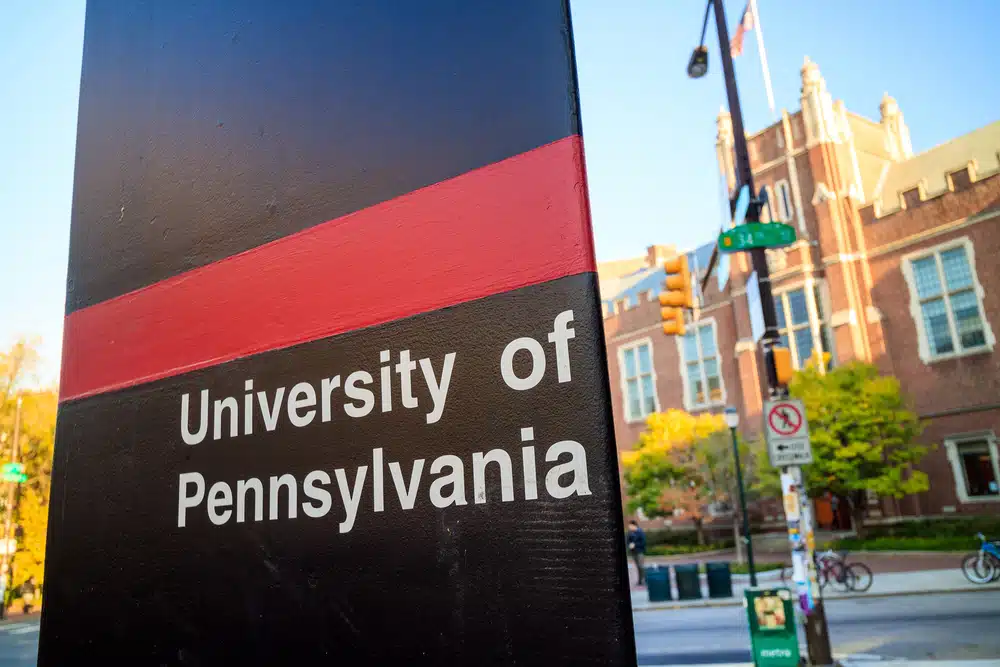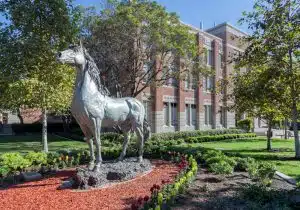Engineering Summer Academy at Penn
Are you a high school student passionate about engineering and technology? If so, the Engineering Summer Academy at Penn (ESAP) might be just the opportunity you’ve been looking for. This program isn’t just any summer camp; it’s a gateway to understanding and experiencing engineering at a college level, designed specifically for high-energy and ambitious students like you. In this blog post, we will dive into what ESAP is all about, why such summer programs are crucial for your academic and personal growth, and give you a peek into the enriching journey that awaits you at Penn.
Our goal is to provide you with a comprehensive guide to the Engineering Summer Academy at Penn. Whether you’re just starting to consider ESAP or are already preparing your application, this post will give you the information and inspiration you need to take the next step in your engineering journey. So, let’s get started and explore what makes ESAP an unmissable opportunity for aspiring engineers.
What is the Engineering Summer Academy at Penn?
The Engineering Summer Academy at Penn (ESAP) offers motivated and talented students an exciting opportunity to dive into the world of engineering at the collegiate level. The intensive three-week programs blend advanced theoretical knowledge with hands-on practical experience at the forefront of technological advancements.
At ESAP, students have the privilege of collaborating with esteemed faculty members while also earning valuable college credits, setting the stage for their academic journeys.
ESAP welcomes students from all backgrounds, eager to explore a world of opportunities. Beyond the classroom, the program serves as a launchpad for exceptional math and science students, giving them a glimpse of the engineering field before college.
Goals and Objectives
The primary goal of ESAP is to introduce you to the world of engineering at a collegiate level. It’s designed to ignite your passion for engineering, sharpen your problem-solving skills, and broaden your understanding of what it means to be an engineer in today’s world. The program aims to:
- Provide an in-depth understanding of engineering principles and practices.
- Foster creativity and innovation in solving real-world challenges.
- Enhance critical thinking and analytical skills through hands-on projects.
- Prepare you for the transition from high school to college-level engineering studies.
- Connect you with peers who share similar interests, creating a network of budding engineers.
In addition to the academic rigor, ESAP also offers a glimpse into college life. You’ll live on Penn’s campus, experiencing the independence and responsibility that come with being a college student. This aspect of the program is invaluable as it prepares you for your future academic and professional journeys.
ESAP isn’t just about academic exploration; it’s about building connections with like-minded peers worldwide, fostering friendships and perspectives that extend far beyond the classroom. Joining the Engineering Summer Academy at Penn means your engineering aspirations can soar in an environment brimming with inspiration and innovation.
Key Features: Course Offering
One of the defining features of the Engineering Summer Academy at Penn is its diverse range of courses, each offering a unique gateway into the world of engineering. With seven courses available at ESAP, participants are encouraged to delve into their areas of interest, acquire valuable skills, and engage in hands-on exploration.
Let’s take a closer look at the exciting ESAP courses that await you.
Artificial Intelligence
In this exciting program, high school students like you will dive into the world of artificial intelligence (AI), especially focusing on generative AI and neural networks. What does this mean? Basically, you’ll learn about how AI can create new things like images, music, or even text, and understand the brain-like systems, called neural networks, that make this possible.
The course blends important AI concepts with real hands-on activities. You’ll get to grips with the math that powers machine learning and neural networks. Don’t worry, it’s about understanding the ideas, not just complex equations. Then, you’ll use what you’ve learned to build your own AI creations.
You’ll get to work on a big project towards the end of the course, where you can make something unique using AI. If you’re good at math, that’s a plus, and if you’ve played around with things like chatbots (like ChatGPT) or have done a bit of coding, that’s helpful too. But even if you haven’t, you can still join and learn a lot.
Biotechnology
In this course, students journey into the fascinating realm of genetic engineering. They explore the techniques behind designing new proteins, producing drugs, and investigating disease mechanisms. By modifying living cells of various organisms, from plants to mammals, students learn how to create essential biomedical products like human insulin and cancer drugs.
The curriculum includes molecular cloning experiments, group research proposals, and engaging discussions in a journal club, providing a holistic understanding of biotechnology’s cutting-edge facets.
Eligible students should have at least one year of coursework in Biology and Chemistry, with AP Biology experience being a plus.
Complex Networks
As networks play an increasingly significant role in modern society, this course introduces students to Network Science and Engineering. Participants gain insights into the structure and behavior of complex networks, along with practical applications in various domains, such as social networks and infrastructure networks.
Through this program, students acquire essential tools, methods, and algorithms for network analysis, enabling them to grasp the intricate world of networked systems.
While prior coursework in physics and math is beneficial, some knowledge of computer programming is recommended but not mandatory.
Computer Graphics
Students passionate about animation and game design will thrive in this course. The curriculum covers the entire character pipeline, from design and modeling to texturing, rigging, programming, and animation.
Participants explore industry-standard software and tools, gaining hands-on experience in character modeling. Visits to Penn’s LiveActor motion capture studio, the Human Modeling and Simulation Center (HMS), and field trips to related companies enhance students’ learning experience.
While prior experience in software like Photoshop, Maya, or other modeling tools is advantageous, it’s not a prerequisite.
Computer Science
The Computer Science course at ESAP provides a comprehensive introduction to the practical aspects of programming and the foundational principles of computer science. Students will learn to translate complex problems into practical computing solutions while delving into data models and algorithmic thinking. This course covers a range of programming languages and key concepts like abstraction, modularity, loops, arrays, classes, and object-oriented programming (OOP).
Beyond practical skills, students will gain a deep understanding of the theoretical underpinnings of computer science, helping them comprehend the journey from binary code to complex software.
This course is tailored for individuals with little to no prior coding experience, making it an ideal starting point for exploring the world of computer science.
Nanotechnology
Nanotechnology, the study of matter at the atomic and molecular scale, is a rapidly growing field with applications in diverse domains. This course explores nanomaterials, fabrication techniques, imaging nanostructures, real-life applications, and ethical considerations in nanoscience. Students develop critical thinking, creativity, and teamwork skills through lectures, labs, assignments, and group projects.
While prior coursework in Chemistry and Physics is preferred, it’s not mandatory.
Robotics
Participants delve into the world of robotics, design, manufacturing, and automation. The curriculum covers topics like sensing, actuation, control, and embedded programming. In groups, students build their own mobile robots and engage in competitive demonstrations. Prior coursework in Physics, Math (Precalculus is a plus), and C programming or Autocad is beneficial.
Each ESAP course offers a unique blend of theoretical knowledge and hands-on experiences, allowing students to unlock their potential in engineering. Whether you’re passionate about biotechnology, network science, computer graphics, nanotechnology, or robotics, ESAP provides a platform to explore your interests, broaden your horizons, and embark on a transformative engineering journey.
Where and When
If you’re thinking about joining the Engineering Summer Academy at Penn, you’re probably wondering where it’s held and when. Let’s dive into the details so you know exactly what to expect.
Where is the Engineering Summer Academy Being Held?
First off, the Academy takes place at the University of Pennsylvania, one of the oldest and most respected universities in the U.S. It’s located in Philadelphia, a city full of history and exciting things to do. The campus itself is pretty amazing – it’s like a small city designed for students. You’ll find everything from libraries and labs to places to hang out and eat.
The campus is not just about buildings and classrooms; it’s a vibrant community. You’ll be surrounded by green spaces where you can relax or study outdoors, and there are lots of spots to meet up with new friends. The University of Pennsylvania really gives you a taste of what college life is like, in a safe and welcoming environment.
When Does the Engineering Summer Academy at Penn Take Place?
Now, let’s talk about when the Academy happens. The program runs from July 7th to July 27th, 2024. These three weeks are packed with learning, hands-on projects, and fun activities.
But wait, there’s more to consider than just those dates. You’ll move into the campus a day before the program starts, on July 6th, 2024. This is when you’ll settle into your dorm, maybe explore the campus a bit, and get ready for the exciting weeks ahead. And when it’s all over, you’ll move out on July 28th, 2024. So, you’re actually going to be on campus for a bit longer than just the program dates.
How Long is the Engineering Summer Academy at Penn?
The Engineering Summer Academy is a three-week long adventure. These three weeks will be full of learning new things, working on cool projects, and making friends who share your interests. It’s a short period, but it’s designed to be intense and rewarding – you’ll be amazed at how much you can learn and do in this time!
What Does Student Life Look Like at ESAP?
When you join the Engineering Summer Academy at Penn (ESAP), you’re not just enrolling in an exceptional academic program; you’re also embracing a unique and enriching student life experience.
Living on Campus
ESAP students reside in high-rise residence halls that offer both comfort and convenience. These air-conditioned halls strike a balance between personal space and a sense of community with multi-occupancy guest suites. Each bedroom has essential items, including an extra-long twin bed, desk, desk chair, lamp, and dresser.
You can personalize your living space to make it feel like home. However, please note that additional furniture is discouraged due to space constraints, and items like sheets, pillows, blankets, towels, soap, wastebaskets, hampers, phones, and computers are not provided.
Residential Teaching Assistants (RTAs), which are Penn undergraduates, live in the dorms alongside students, offering guidance and serving as Teaching Assistants in the classrooms.
Housing
Penn’s high-rise residence halls provide stunning views of the city and offer apartment-style living with modern amenities. With a total capacity to accommodate 2,317 residents, these halls are designed for comfort and convenience.
They feature wall-to-wall carpeting, air-conditioning, and private bathrooms, and many even include kitchen facilities. ESAP students typically stay in residence halls such as Rodin, Harnwell, and Harrison College Houses.
Dining Halls
When it comes to dining, ESAP participants enjoy delicious meals at the 1920s Commons and Houston Market dining halls. While these venues cater to a wide range of tastes, students with special dietary needs can also be accommodated, although offerings may be limited during the summer.
Public Safety
Safety is a top priority at Penn, and ESAP students can rest assured knowing that all entrances to the high-rise residence halls are monitored around the clock by Penn Public Safety. Access to these facilities is secured through ID swipe and private key code entry, ensuring a safe and secure living environment.
At the Engineering Summer Academy, student life is an integral part of the experience, offering not only a comfortable and secure living environment but also a sense of community and camaraderie that enhances your overall journey in the program.
Why Should You Join the Engineering Summer Academy at Penn?
So, you’re thinking about the Engineering Summer Academy at Penn, but you’re not quite sure if it’s for you? Let’s talk about why joining could be a great decision. This isn’t just another summer program; it offers a bunch of benefits that can help you in school, in making friends, and even in your future career.
Academic Benefits
First up, the academic side of things. ESAP isn’t like regular school. You get to dive deep into engineering topics that are usually only covered in college. This means you’re getting a head start on understanding complex subjects.
ESAP offers a glimpse into the world of college life. It allows you to experience the challenges and rewards of studying at an Ivy League institution. This exposure fosters personal growth and independence, equipping you with essential college success skills.
Plus, you’re learning from some of the best professors around, which can really boost your knowledge and skills. It’s not just theory either; you’ll be working on real projects, which is a great way to learn.
Social Benefits
Then there’s the social aspect. At ESAP, you’re going to meet other students who are just as interested in engineering as you are. These could be your friends for life, or at least people you can connect with on projects or study with in the future. It’s not all about studying, though; there’s plenty of time for fun and making memories.
Career Benefits
Thinking about your future career? The skills and knowledge you gain at ESAP can be a big help. You’ll get a taste of what working in engineering is really like, which can guide you when you’re deciding what to study in college or even what kind of job you want. Plus, having the Academy on your resume can impress colleges and future employers.
After you finish ESAP, the benefits don’t just stop. You’ll be part of an alumni network, which means you can stay in touch with your new friends and even the instructors. This network can be really helpful when you’re applying to colleges or looking for internships. Speaking of college, the Academy is a great preparation for what’s ahead. You’ll have a better idea of what to expect in college-level engineering courses and how to handle the workload.
In short, joining the Engineering Summer Academy at Penn is more than just a way to spend part of your summer. It’s a chance to grow academically, make lasting friendships, and set yourself up for success in the future. Whether you’re sure about a career in engineering or just curious, this program can give you a valuable head start.
How to Get into the Engineering Summer Academy at Penn
Here’s what you need to know about the admission process. It’s important to understand that getting into ESAP is competitive, so pay close attention to the eligibility criteria, application requirements, and tips for a successful application.
Eligibility Criteria
First things first, who can apply? ESAP is for high school students who are rising sophomores to rising seniors. This means you must have finished your freshman year (ninth grade) and be at least 15 years old by the start of the program. If you’re currently in your senior year, you’re not eligible for this program.
Academically, you should have at least a 3.0 GPA or its equivalent. ESAP especially values strong performance in math and science subjects, as well as honors and advanced courses. Remember, ESAP is not a casual summer camp; it’s an intense, college-like experience, so you should be ready for a challenging academic environment.
For International Students
Penn Engineering celebrates diversity with students from over 100 countries. ESAP offers international students a unique opportunity to explore their passion for math and science on a global stage.
Students can immerse themselves in Ivy League academia, earn college credits, and experience life on Penn’s dynamic urban campus in historic Philadelphia while building lasting connections with peers from around the world.
For international applicants whose native language isn’t English, TOEFL scores are highly recommended. Alternatively, if you attend a high school where English is the primary language of instruction, you have the option to provide a letter from your Head of School or Guidance Counselor confirming at least one year of attendance and your English proficiency.
Additionally, at least one of your recommenders should assess your English language abilities in their letter of recommendation.
International applicants, excluding US citizens and residents, must also obtain an F-1 visa to attend the program. Visitor visas are not being acceptable.
ESAP values diversity, inclusivity, and the rich perspectives that international students bring to the program. The program eagerly anticipates welcoming students from around the world to explore the exciting world of engineering at Penn.
How to Apply to the Engineering Summer Academy at Penn
Your journey to ESAP will be an exciting step towards exploring the world of engineering at the collegiate level. This guide outlines the essential steps on how to get into the Engineering Summer Academy at Penn.
Application Requirements
To ensure your application is comprehensive, make sure to include the following materials:
- Online application: includes personal essay and short answers
- Official high school transcript
- Two letters of recommendation
- $85 non-refundable application fee
- Optional standardized test scores (PSAT, SAT I/ II, ACT, AP, TOEFL)
The application for ESAP opens on January 2, 2024. You’ll need to fill out an online application, which includes writing an essay and answering some short questions.
For the essay (500 words max), you have two options:
- Talk about what excites you about engineering, including any experiences or concepts that have influenced your interest.
- Discuss the skills or talents you have (or hope to acquire) that will make you successful in engineering or STEM.
The short answer questions (200 words max each) are about teamwork and your course preferences in ESAP.
Additionally, you’ll need to send in your official high school transcript, which should be emailed directly from your school as a PDF to [email protected]. Two letters of recommendation are also required, with at least one from a math or science teacher.
Standardized test scores (like PSAT, SAT, ACT, AP, or TOEFL) are optional. If you think they’ll strengthen your application, include them. International students should check the ESAP website for specific TOEFL requirements.
When is the Deadline to Apply to the Engineering Summer Academy at Penn?
Getting your application in on time for the Engineering Summer Academy at Penn is crucial. There are two key dates you need to remember.
- Priority Deadline: March 1st. This is the first key date. If you submit your completed application by this day, you’re in the first group to be considered. It’s a good idea to aim for this deadline because it gives you the best chance of getting a spot.
- Final Deadline: April 5th. This is the absolute last day you can submit your application. If there are still spaces available after the priority deadline, applications sent in between March 1st and April 5th will be reviewed on a rolling basis.
It’s important to note that applications sent in after March 1st might take a bit longer to process, especially if they are submitted right after this date, as this is when the admissions team is usually the busiest. You can expect it to take at least three weeks for your application to be processed and reviewed during this time.
Don’t forget, you can always check the status of your application by logging into the application portal. This is a handy way to keep track of where you stand in the application process.
Try your best to apply by the Priority Deadline on March 1st for the best chance of acceptance. But if you can’t make that deadline, you still have until April 5th to get your application in. Just remember, the earlier you submit, the better your chances are.
When Do I Find Out About My Application to the Engineering Summer Academy at Penn?
After you’ve sent in your application to the Engineering Summer Academy at Penn, you’re probably going to be pretty eager to find out if you got in. Here’s what you need to know about when you’ll hear back on your application.
First, keep in mind that getting into ESAP is quite competitive. The admissions team looks at a bunch of things like your academic interests, what you’ve achieved so far, how you might add to the program, and what you’re likely to learn from it.
If you manage to get your application in by the priority deadline, you can expect to hear back about whether you got in starting the week of April 8th. This means that if you’re quick with your application, you won’t have to wait too long to find out the decision.
For those who submit their applications after the priority deadline, the process is a bit different. Your application will still be carefully looked at, but you’ll be notified of the decision on a rolling basis. This means the admissions team will make decisions as they review each application, rather than all at once. So, the sooner you apply after the priority deadline, the sooner you’ll know the outcome.
Remember, getting into ESAP is competitive, but if you put your best foot forward in your application, you have a shot at being part of this awesome program.
Tips for a Successful Application to the Engineering Summer Academy at Penn
Applying to the Engineering Summer Academy at Penn (ESAP) is your chance to show why you’d be a great fit for this exciting program. Here are some detailed tips to help you make your application stand out:
1. Show Your Passion for Engineering
- Your application is the perfect place to let your enthusiasm for engineering shine. In your essay and short answers, talk about what draws you to engineering. Maybe it’s a project you worked on, a class you loved, or a problem you want to solve in the future. If you’ve ever tinkered with gadgets, built something on your own, or even just spent hours reading about the latest tech developments, mention that. These details help paint a picture of who you are and why engineering excites you.
2. Highlight Your Teamwork Skills
- ESAP values students who play well with others. Engineering is often about collaboration, so show that you’re ready to be part of a team. In your application, describe a specific time when you worked with others. Maybe you were part of a robotics club, worked on a group science project, or even helped organize a community event. Focus on a situation where you faced a challenge or conflict and explain how you worked through it. This will show that you know how to communicate, compromise, and contribute in a team setting.
3. Be Clear and Concise in Your Responses
- When answering essay questions or writing short responses, it’s important to be clear and to the point. Stick to the word limit – it shows you can express your thoughts effectively without unnecessary fluff. Answer each part of the question directly and make sure your main points are easy to spot. A well-structured and focused response can leave a much better impression than a rambling one.
4. Pay Attention to Detail
- Small mistakes can distract from your great ideas, so give your application a thorough check before submitting. Make sure there are no spelling or grammar errors. Also, double-check that you’ve included all the required materials, like your high school transcript and letters of recommendation. These should be sent correctly as per the instructions. Ensuring that everything is complete and error-free shows that you’re serious about your application and have good attention to detail.
Your application to ESAP is your opportunity to show the admissions committee who you are and what you bring to the table. Let your passion for engineering, your ability to work in teams, your clear communication, and your attention to detail shine through.
What are the Costs of Attending the ESAP?
One of the critical aspects of planning your journey with the Engineering Summer Academy at Penn (ESAP) is gaining clarity on the program’s costs. Now, what are the costs of attending the ESAP?
For the 2024 program, there are two primary fees to consider:
Application Fee (Non-Refundable): $85
This fee is an essential part of the application process and is non-refundable. It covers the administrative costs associated with processing your application.
If you qualify for an application fee waiver, such as participation in a free/reduced lunch program or eligibility for a test fee waiver from the CollegeBoard, you can have your high school counselor verify your income status and the need for a fee waiver.
Once approved, the ESAP office will provide you with the necessary waiver code, allowing you to complete your application without this fee.
Program Fee: $8,000
The program fee is the core cost that covers a comprehensive range of essentials during your time at ESAP. This fee includes all tuition expenses, room and board, meals, necessary course materials, and program-related trips.
It offers a complete package to ensure your immersive experience in the program. However, please note that travel costs to and from the program are not included in the program fee.
Financial Aid Opportunities
The Engineering Summer Academy at Penn is committed to ensuring access to the program for students with demonstrated financial need. To apply for financial aid, you can download and complete the relevant forms provided on the program’s website.
It’s essential to submit your completed financial aid application, along with the required supplemental documents, to CollegeNet within 10 days of submitting your program application. All the necessary documents should be uploaded as a single combined PDF file onto your CollegeNet home dashboard. The notification about financial aid availability will be announced simultaneously with the admissions decision.
Understanding the costs and exploring financial aid opportunities allows you to make an informed decision about your participation in ESAP. The program is dedicated to making this exceptional engineering experience accessible to all deserving students, ensuring that finances do not serve as a barrier to their academic pursuits.
Frequently Asked Questions
Got questions about the Engineering Summer Academy at Penn (ESAP)? You’re not alone! Here are some of the most common questions we get, along with straightforward answers to help you out.
Q: What kind of courses can I expect at ESAP?
Answer: ESAP offers a variety of engineering courses that cover different areas like robotics, computer science, and more. These courses are designed to give you both theoretical knowledge and practical experience. You’ll get to work on projects, use the latest technology, and learn from top faculty.
Q: Do I need to be really good at math and science to join?
Answer: A strong background in math and science will definitely help, as the program is quite challenging. However, what’s more important is your willingness to learn and engage with the material. If you’re passionate about engineering and ready to work hard, you’ll fit right in.
Q: Can joining ESAP help with my college applications?
Answer: Absolutely! Participating in ESAP shows colleges that you’re serious about engineering and have already taken steps to explore the field at a higher level. It can also give you interesting experiences to write about in your college essays.
Q: What’s the daily schedule like at ESAP?
Answer: Your days at ESAP will be a mix of classroom learning, hands-on projects, and group work. There’s also time set aside for meals, relaxation, and activities. The schedule is structured but also leaves room for fun and socializing.
Q: Are there scholarships or financial aid available for ESAP?
Answer: ESAP does offer financial aid to students who need it. You can apply for financial aid during the application process. The amount of aid given depends on your financial need and the availability of funds.
Q: What should I bring with me to ESAP?
Answer: You’ll need typical school supplies like notebooks and pens, as well as a laptop if you have one. Don’t forget clothes, toiletries, and any personal items you’ll need for three weeks. After you’re accepted, you’ll receive a detailed packing list.
Q: Can international students apply to ESAP?
Answer: Yes, ESAP welcomes applications from international students. Just make sure you meet the program requirements and have taken care of any visa needs. International students should also check the English language requirements if applicable.
Q: Will I get to explore the University of Pennsylvania campus?
Answer: Definitely! While you’re at ESAP, you’ll be living on Penn’s campus, so you’ll have plenty of opportunities to explore and get a feel for college life there.
Q: How competitive is the admission process for ESAP?
Answer: Admission to ESAP is selective, as there are many applicants but limited spots. The key to a strong application is to show your passion for engineering, your academic achievements, and your ability to work well in teams.
Remember, ESAP is a fantastic opportunity to dive deep into engineering, meet like-minded students, and get a taste of college life. If you have any more questions, don’t hesitate to reach out!
Final Thoughts
The Engineering Summer Academy at Penn (ESAP) is more than just a summer program; it’s a deep dive into the exciting world of engineering. It offers hands-on experience in cutting-edge technologies, mentorship from top-notch faculty, and a glimpse into college life at one of the most prestigious universities in the U.S.
ESAP is designed for students who are passionate about engineering and eager to challenge themselves academically. Whether you’re a rising sophomore, junior, or senior, this program is a chance to explore your interests in engineering, develop new skills, and make lasting friendships. The courses cover various aspects of engineering, combining theoretical knowledge with practical projects. It’s a perfect blend of learning and real-world application.
Moreover, attending ESAP can be a significant boost to your college applications, showcasing your commitment to engineering and your ability to thrive in a rigorous academic environment. It’s an experience that can shape your future in STEM.
If you’re intrigued by the world of engineering and ready for a challenging yet rewarding summer experience, consider applying to ESAP. Don’t forget, the application process is competitive, so bring your best to the table. Show your passion, highlight your teamwork skills, and pay attention to detail in your application.
What are You Waiting for?
For students aspiring to join ESAP, admissions counseling companies like AdmissionSight can provide invaluable guidance throughout the competitive admissions process. AdmissionSight’s expertise can help you present your best self in your application, increasing your chances of securing a spot in remarkable programs like the Engineering Summer Academy at Penn.
ESAP is your opportunity to explore the exciting world of engineering, and its benefits extend far beyond academics. As you embark on this journey, remember that resources like AdmissionSight can play a pivotal role in making your ESAP aspirations a reality.













































